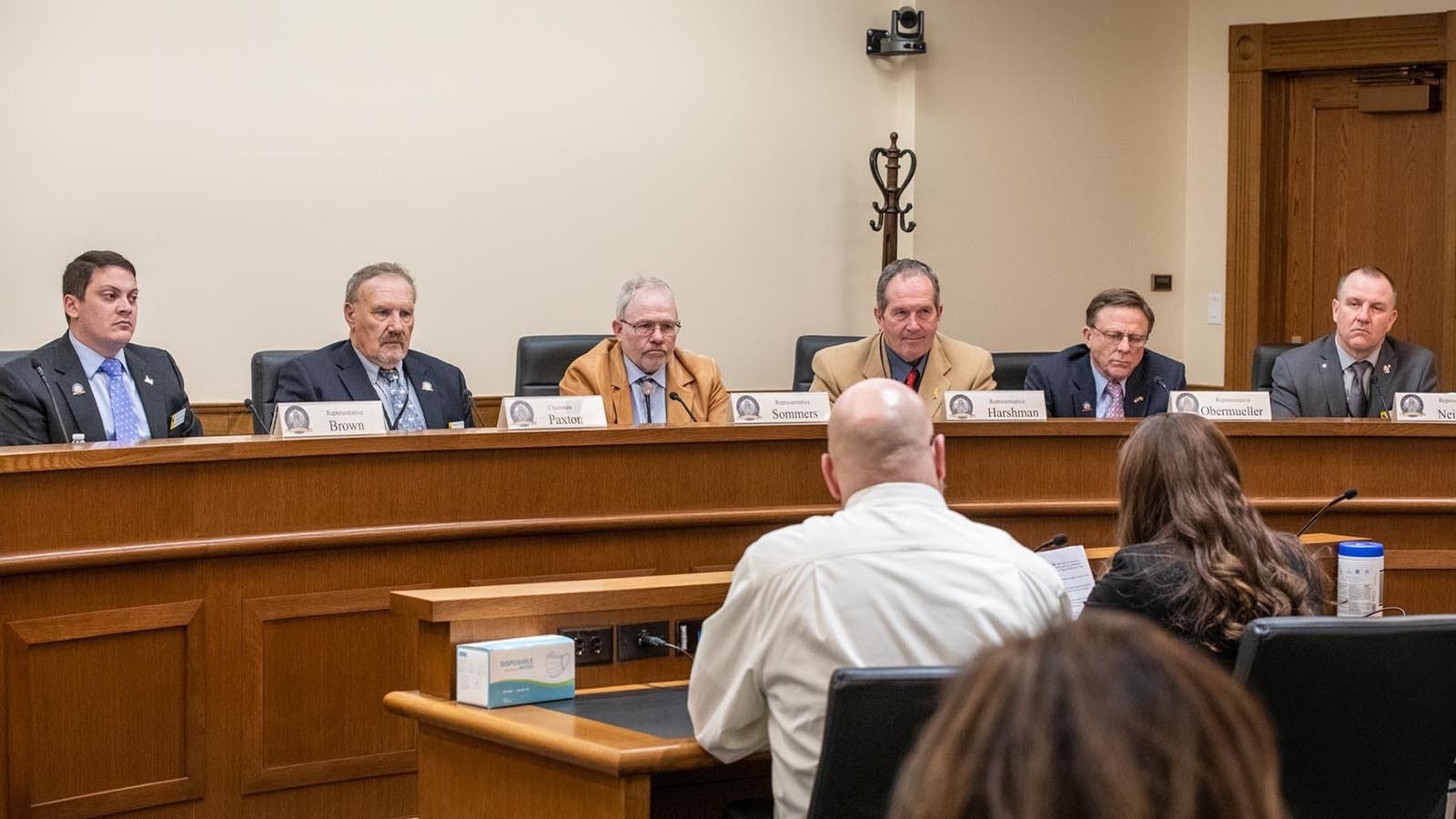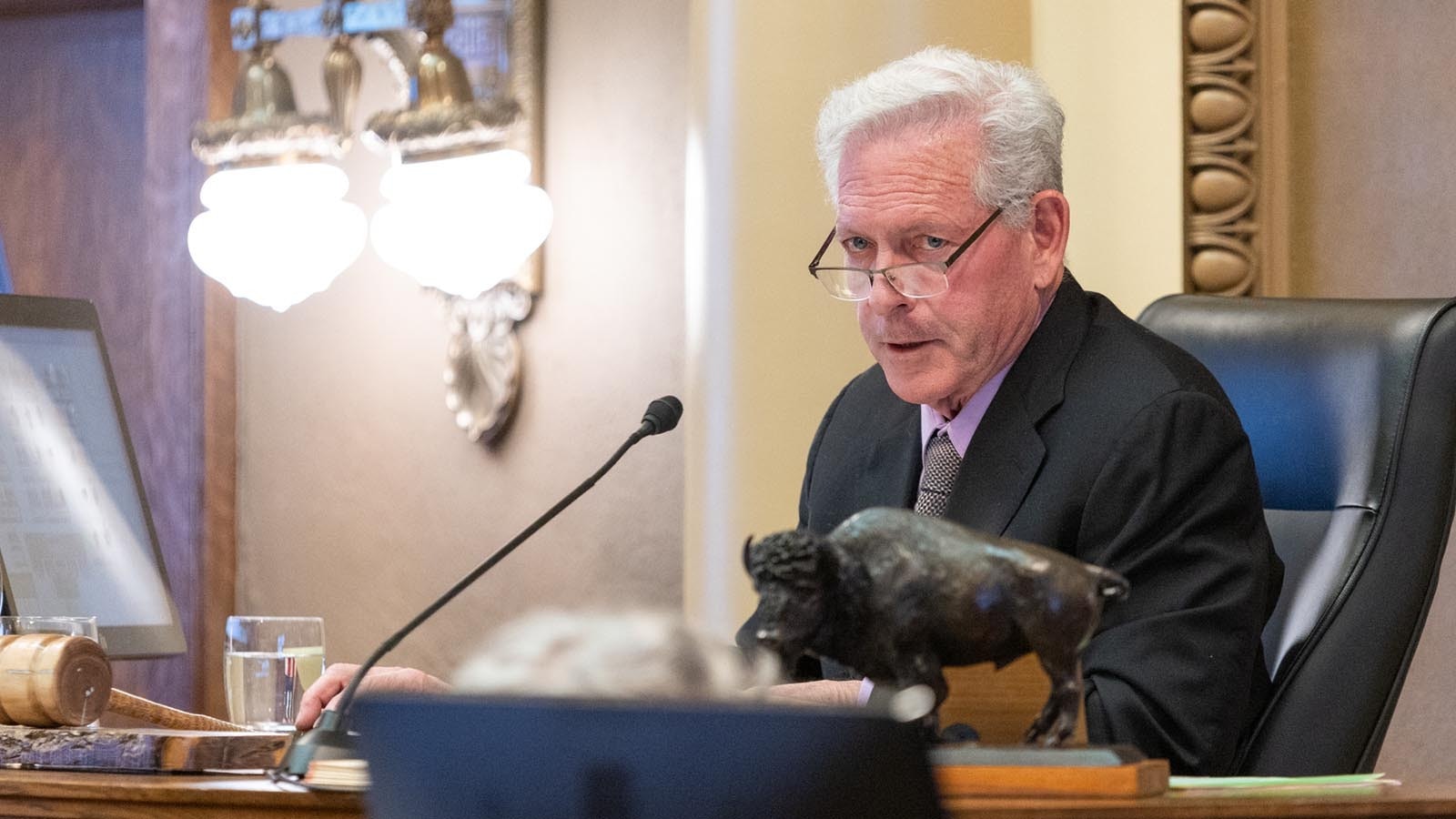Educators and their advocates on Monday demanded more respect from the Wyoming public and the Legislature. They also asked for mental health support and better pay for teachers.
Later in the day while meeting in Casper with the Legislature’s Joint Appropriations Committee, the Joint Education Committee voted to send a $70 million request to Appropriations to increase school funding in response to inflation.
R-E-S-P-E-C-T
Advocates for Wyoming’s public education system, as well as one third grade teacher, testified before the Education Committee on Monday morning about hardships experienced currently by school staff.
“If you ask any educator they will tell you that they just want to be respected and trusted and valued,” said Kim Amen, a third grade teacher at Pioneer Park Elementary School in Cheyenne.
Respect was the key theme of Amen’s presentation and is, she said, something the Legislature can supply without having to allocate money.
Amen said that since the COVID-19 pandemic began, teachers and school staff have been at the center of national debates, first regarding mask mandates and now about social issues such as critical race theory and the contents of books found in schools.
At least one major Wyoming school district, Natrona County School District No. 1, is now embroiled in a debate regarding school library books that some say are filled with pornography and others say are vital to LGBTQ inclusion.
Rep. Jerry Obermuller, R-Casper, asked Amen what might be driving public mistrust or disrespect toward school personnel.
Amen said that school board meetings and parent pushback in the classroom have become difficult to handle.
“It’s not everyone – but there’s enough of the rhetoric out there that demoralizes us as a profession, and it certainly doesn’t lift us up and make us feel like we are appreciated,” she said.
Legislative attempts to scrutinize the school system more closely – such as a failed bill this year that would have required teachers to post lesson points online in advance of the school year – also “lead us to believe we aren’t trusted to do our job,” she said.
Community Values
Obermuller asked whether Amen believes the staff at her school align “pretty closely with the values of the parents?”
Amen said that she believes her school and principal are great and she engages well generally with students’ parents.
Obermuller pressed again, asking if Amen and her colleagues are “leading in some of these (divisive) social issues, or following?”
Amen said the social issues are “out of our control” but that teachers would like to have more input with respect to school policy-making and to “correct some of the misinformation and disinformation, frankly, that’s been given.”
‘Unwanted Scrutiny’
Tate Mullen, government relations director for the Wyoming Education Association, described differences between school staffers and lawmakers in harsher terms.
“Educators from across the state have continuously witnessed this legislative attempt to pass a variety of bills that target education either through curriculum directives, devastating budget cut proposals, the promotion of charter schools, the exploration of funding parochial and private schools with public dollars and an amendment to the (state) Public Records Act that would expose educators to continued and increased, unwanted scrutiny,” said Mullen.
In the 2021 Legislative session, lawmakers passed a bill allowing startup charter schools to be authorized by the state’s top five elected officials, rather than by their neighboring school boards. The bill, which became effective in July, has been characterized as an effort to provide additional school choice to parents.
Three new charter schools have been approved to draft contracts with the state and ultimately to receive funding. One is a project-based school in Chugwater, the other two are classical education academies in Cheyenne and Casper, both of which have been approved to receive curricula from Hillsdale College.
‘Merely Helping Our Most Marginalized Students’
Mullen continued: “(Educators) have watched this legislative attempt to pass legislation that targets our LGBTQ+ student population, continuing in sowing divisiveness against a student population our classroom instructors and staff have recognized are the most at-risk and in need of protective policies, not exclusionary ones.”
During the 2022 legislative session, Sen. Wendy Schuler, R-Evanston, attempted to pass a bill titled “Fairness in Women’s Sports Act” that would have kept biological males out of female school sports.
The Wyoming High School Athletics Association now has a permissive appeals process by which transgender students denied sporting opportunities by their schools may appeal to association and gain approval to compete with teammates of their identified gender.
Schuler’s bill did not pass; many legislators cited a lack of time to work through it during the rushed budget session.
Mullen said that “national rhetoric” now surrounding public schools is “patently false (and) filled with disdain and contempt for public education.”
He said the same narratives have reached Wyoming, and the result is that educators are “being labelled as groomers and pedophiles for merely helping and advocating for our most marginalized students.”
Mullen recommended greater respect between the public and educators, better pay funded by the public and for improvements in funding for and access to mental health support for teachers.
‘The Public Has Some Concerns’
Education Committee Co-Chair Sen. Charlie Scott, R-Casper, addressed Mullen after the latter’s heated presentation.
“You’ve got to understand, we do represent the public that elects us,” said Scott. “And the public has some concerns.”
Scott pointed to the most recent Wyoming Test of Proficiency and Progress (WyTOPP) scores, which are at less than 50% advanced and proficient statewide, averaged, across the subjects of English, math and science.
“I’m not blaming the teachers for that. It is something wrong in our system,” Scott said. “We have some districts that are doing quite well – we have a number doing quite poorly.”
Scott said for Mullen to launch “a general attack on the Legislature” would not advance collaborative interests, though Mullen could address individual legislators as needed.
Sen. Chris Rothfuss, D-Laramie, said Scott’s comments were not helpful either.
“Even statements like that, suggesting we’re not performing to the level we should perform – when we’re one of the top states – is looking for a negative where there should be positives,” said Rothfuss, adding that in highlighting deficiencies in statewide testing, the state may be “propagating misinformation.”
“It’s not about elections. It’s about data. Believe the data,” he said.
Scott said the data indicate low literacy levels across Wyoming.
“You’re entitled to your opinion, and well, you’re the minority,” said Scott.
Rothfuss is the minority floor leader of the state Senate.
Rep. Steve Harshman, R-Casper, said that the WyTOPP isn’t the perfect indicator of how Wyoming students are doing, especially compared to students in other states.
Dissatisfaction, Mental Health Issues
Dr. Mark Perkins, assistant professor of educational research at the University of Wyoming’s College of Education, told the committee earlier in the meeting that educators throughout Wyoming feel they are enduring mental health strain and a lack of community, administrative and government support.
Disciplinary issues with students also are on the rise, Perkins reported.
Superintendent Mike Jennings of Natrona County School District No. 1 agreed, saying his district is having problems hiring and retaining staff.
Rothfuss said he hopes to see the Legislature carve away some of the unnecessary mandates or overseers it may have placed upon educators.
“I loathe bureaucracy,” he said.





